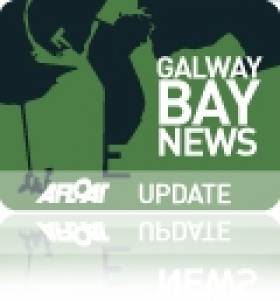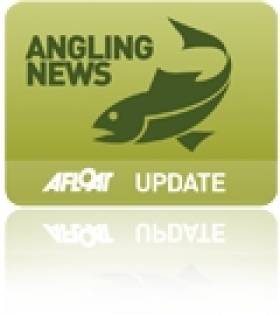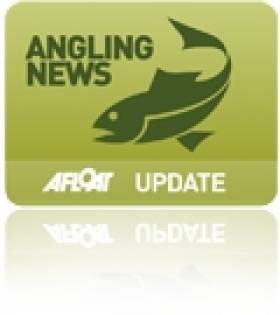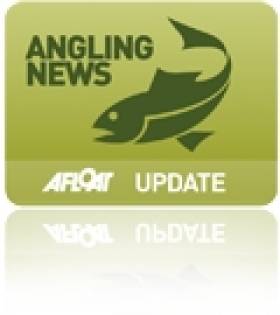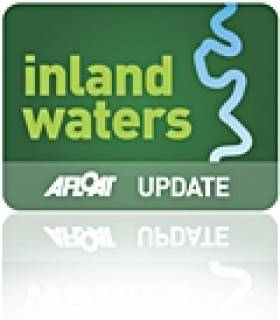Displaying items by tag: management
P&O Maritime Logistics which is headquartered in Dubai, United Arab Emirates, will through its Irish office in Galway, provide full-service management of the Marine Institute’s new state-of-the-art research vessel, RV Tom Crean, on behalf of client the Marine Institute with the ship having entered service this week.
The newbuild's recent maiden voyage to Galway, the ship's homeport and base, was named after Tom Crean the Irish Antarctic explorer and seafarer. The new vessel will undertake important multidisciplinary research as well as maintenance of weather buoys and other critical ocean infrastructure on behalf of the Marine Institute – the government agency responsible for marine research, technology development and innovation in Ireland.
The Marine Institute sits under the Department of Agriculture, Food and the Marine, and plays a key role in providing scientific and technical advice to the Irish government on issues relating to Ireland’s marine resources. The vessel will play a key role in informing marine policy in island nation, and its state-of-the-art equipment will provide researchers with the high calibre tools that are necessary for such a critical job.
With the P&O Maritime Logistics’ tenured experience with research vessels and experience with leading technology systems, P&O Maritime Logistics personnel have been on site at the shipyard preparing for delivery and operation of the vessel including supporting the integration and testing of scientific equipment.
Tom Crean will replace the Marine Institute’s current research vessel, the 25-year-old Celtic Voyager, and along with the Celtic Explorer will provide a significant and enhanced capability for Irish Marine research. The vessel will be an important tool in gathering data and information to support the development and sustainable management of Ireland’s marine resources.
Director of Ocean Climate and Information Services at the Marine Institute, Michael Gillooly said: “The Celtic Voyager, operated by P&O Maritime Logistics greatly contributed to the expansion of marine Research, Technological Development and Innovation (RTDI) activity and with the arrival of the Celtic Voyagers replacement, the Tom Crean; this increase in activity will continue and make an important national and international contribution to the understanding and sustainable management of our oceans.”
On Tom Crean, P&O Maritime Logistics will provide a wide range of services, including operational, technical, instrumentation and IT support, workshops and crewing.
CEO of P&O Maritime Logistics, Martin Helweg said: “Researching the health of our oceans is incredibly important. As a maritime business we fully support the work of the Marine Institute and are honoured by the responsibility awarded to P&O Maritime Logistics to operate the Tom Crean.
“As a data-led business that leverages next-generation technology across our fleet and operations, and with our wide ranging and deep-rooted experience managing research vessels, P&O Maritime Logistics is well placed to operate the Tom Crean on behalf of the Marine Institute as it becomes operational.”
P&O Maritime Logistics has over a quarter century of experience managing research vessels, having operated ships on behalf of government agencies in France, Australia and the UK.
Management Plan for Galway Bay Fisheries On Track
#GALWAY BAY - Galway Bay FM reports that the National Parks and Wildlife Service is to work with the Marine Institute towards completing a management plan for Galway Bay.
It comes two weeks after a group of oyster fishermen met Minister for Natural Resources Pat Rabbitte at Leinster House to voice their concerns over a cap on oyster dredging licences.
As previously reported on Afloat.ie, local fishermen in the inner Galway Bay-Clarinbridge area are concerned that their livelihoods are at risk after the European Union ruled that there is over-intensification of fishing at the oyster bed.
Only 13 dredging licences have been issued this year, and EU Directives prevent their further issue until a fisheries management plan is introduced.
Galway West Senator Fidelma Healy-Eames says steps are being made to get the management plan on track.
#ANGLING - The 30-day public consultation on new regulations for the management of the 2012 wild salmon and sea trout fishery will expire next Thursday, The Irish Times reports.
The new regulations are based on advice from Inland Fisheries Ireland following an assessment of 141 rivers nationwide by the Salmon Standing Scientific Committee.
That assessment recommended that that 43 rivers should open (seven fewer than in 2011); 34 rivers should open for catch-and-release (six more than 2011); and 64 rivers should be closed (one fewer than 2011).
New conservation rules include bag limit for sea trout and a restriction on angling for other species when fishing for salmon on closed rivers.
The Irish Times has more on the story HERE.
First Meeting of National Inland Fisheries Forum
Seasonality, climate change and the environment were the hot topics discussed at the inaugural meeting of the National Inland Fisheries Forum in Athlone last Thursday.
Inland Fisheries Ireland chief executive Dr Ciaran Byrne hosted the forum, whose 60 voluntary members - drawn from various stakeholder groups - are is set to meet twice annually.
The day saw TV personality and keen angler Derek Davis installed as chairman of the forum, following his appointment by the Minister for Natural Resources.
Davis noted that the forum "can influence policies for the protection, management, development and conservation of this valuable resource now and for the generations to come."
In his own address to the forum, Dr Ciaran Byrne highlighted the members' collective experience in fisheries management on Ireland's inland waterways.
“A number of you have served as members of the central and regional fisheries boards, some for over 20 years," he said. "As members of the forum you have the opportunity to discuss and advise on the future of inland fisheries in Ireland. IFI looks forward to receiving your considered views on the various issues.”
In a message to the meeting, Minister Pat Rabbitte stated his belief "that the forum will provide a meaningful channel of communication between the stakeholders and management of the inland fisheries resource".
Irish Bass Group Chair Gives Praise to 'Wolf of the Sea'
The chairman of the Irish Bass Group gave his praise to the fish described as the 'wolf of the sea' at a recent angling awards day.
John Quinlan told his audience at the Irish Specimen Fish Committee awards that Ireland has "something truly unique" in a marine fish that is reserved for recreational angling.
He also noted that "in spite of 21 years of bass protection, we have never felt secure enough to build the type of industry that this unique opportunity should justify."
Quinlan explained how bass play "a vital role" in the biodiversity of our inland waters, highlighting the interdependence between bass and sea birds.
“There are still magic days to be had bass fishing," he said, adding his belief that "anglers have a right to be involved in the management of our bass stocks".
He continued: "We have looked after them very well over the last 21 years and earned the right to be involved in any decisions about how they should be managed in the future. If we are to be successful we need to be taken more seriously by our Government."
Quinlan pointed to the potential benefits of angling tourism, an area that "has been lacking for far too long".
“The French call bass ‘loupe de mer’ or ‘the wolf of the sea’," he added. "These beautiful fish have hunted in our waters for centuries and I hope they continue to do so for many years to come.”
The Irish Times has more on the story HERE.
Inter-Agency Response to Lough Erne Weed Invasion
A new inland waterways inter-agency response to the rising levels of invasive weed growth on Lough Erne has been launched.
The Lough Erne Invasive Species Group (LEISG) brings together Fermanagh District Council, the Northern Ireland Environment Agency (NIEA), Waterways Ireland, the UK's Departments of Culture, Arts and Leisure, and Agriculture and Rural Development, among others, to tackle the threat posed by the invasive Nuttall's Pondweed.
LEISG says the weed has survived the winter "in significant quantities", and the potential for its rapid spread poses a serious concern for tourism and leisure on Co Fermanagh.
The group has recommended harvesting and weed-cutting as the most effective method to control Nuttall's Pondweed where it may interfere with main channels and access to public amenities.
Management of water levels has also been identified as playing a role in future control of the weed.
Anyone wishing to assist in weed-cutting must contract the NIEA through www.nidirect.gov.uk for permission. More information on invasive species is available at www.invasivespeciesireland.com.


























